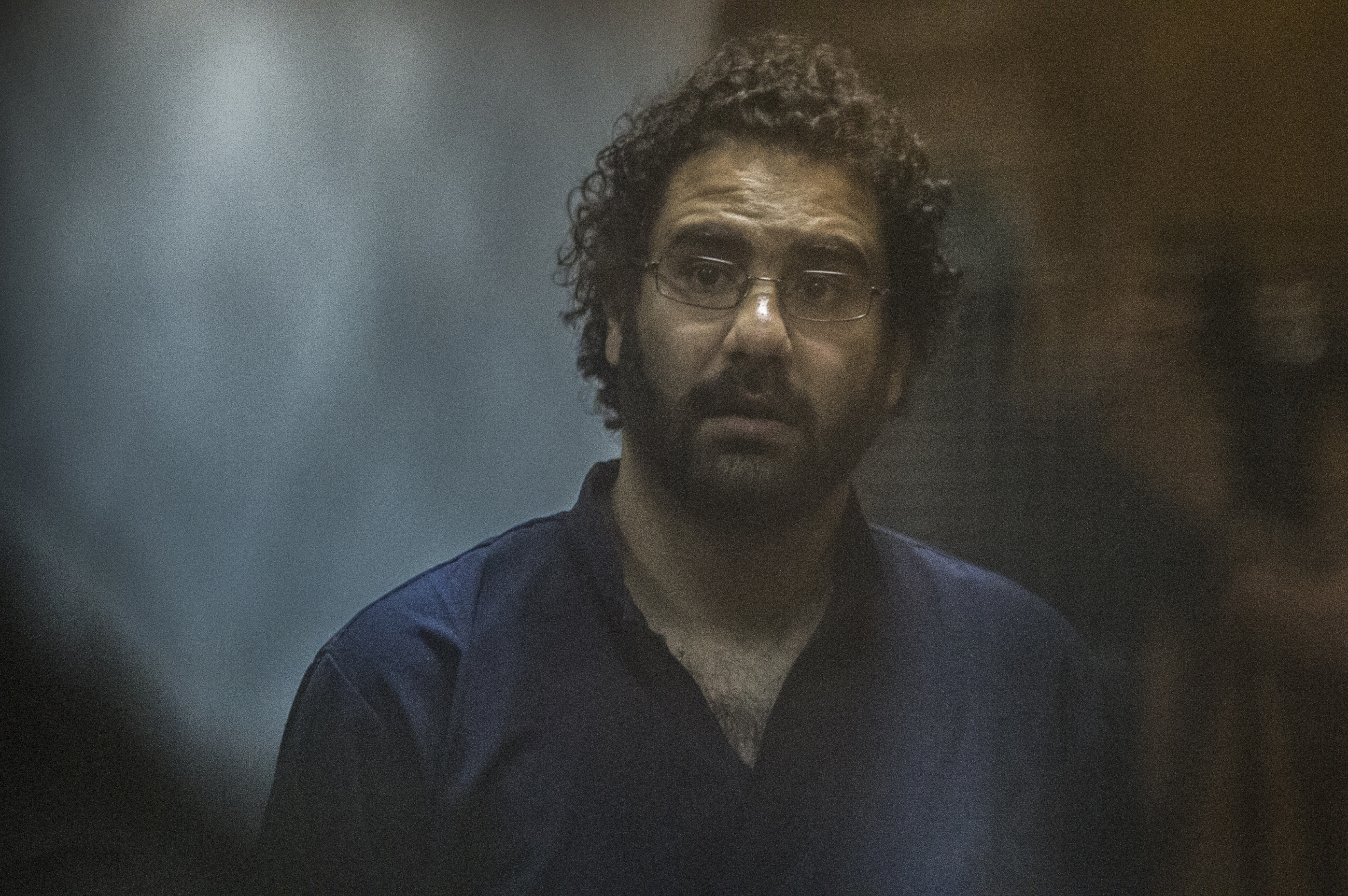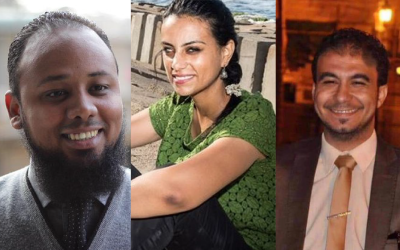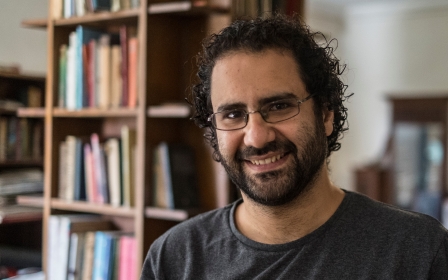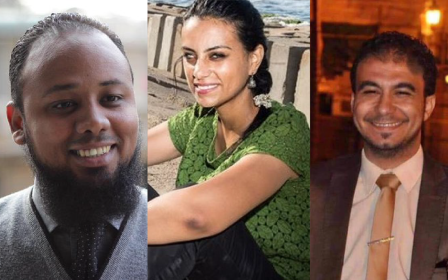Egyptian activist Alaa Abdel Fattah beaten and threatened in prison, say lawyers

Egyptian activist Alaa Abdel Fattah has been beaten, threatened and robbed in prison since his arrest on 29 September, according to his lawyers.
“Alaa was beaten on being arrested, on arrival in prison and has been repeatedly threatened since. He was told if he spoke it would become worse,” a statement by his family read, citing information the activist told his lawyers.
Abdel Fattah, 37, was one of the leading voices of the 2011 uprising that led to the ousting of longtime autocrat Hosni Mubarak.
He was jailed on charges of protesting without permission in 2013 and was released in March.
However the terms of his parole have dictated that the activist must spend every night in a cell in his local police station, from where he was arrested last month.
The supplementary penalty that Abdel Fattah, like other political prisoners, was serving while on probation lasts for five years.
Abdel Fattah, who is a leading voice on the Egyptian left, is facing charges of “belonging to an illegal organisation and spreading false information” as part of case number 1356/2019.
His most recent arrest came as authorities cracked down on a spate of protests that was the largest public show of discontent with President Abdel Fattah el-Sisi's government in years.
Over 3,120 people, including well-known activists, journalists and lawyers, have been arrested since 20 September, when the protests first erupted over a series of corruption allegations a prominent actor and businessman levelled against Sisi and other top officials.
One of Abdel Fattah’s lawyers, Mohamed el-Baker, was also arrested while he was attending his interrogation, and was added to the same case.
Torture details
On Thursday, Abdel Fattah’s lawyers said officers blindfolded the activist as they took him from the Dokki police station to Tora maximum security prison.
He was slapped and kicked as he entered the prison door, they said, and told to strip to his underwear, then forced to walk down a corridor of people as he was beaten on his back and neck for 15 minutes.
After the beatings stopped, the lawyers said, Abdel Fattah was blindfolded again and taken to an officer.
The officer, according to the family’s statement, told Abdel Fattah that “he hates the revolution and hates him".
'Alaa was beaten on being arrested, on arrival in prison and has been repeatedly threatened since. He was told if he spoke it would become worse'
- Family statement
Abdel Fattah was told "that prison is made to 'teach people like you a lesson'", and warned that he would be in prison for the rest of his life.
Additionally, the lawyers claimed that the activist was robbed of all the clothes his family sent to him, leaving him with only the underwear was arrested in.
The head of Tora prison’s investigations, according to the family, warned Abdel Fattah that if he spoke about what happened he would be beaten “more and worse”.
Prior to his arrest, Abdel Fattah had written an article on his life in prison, detailing events like the ones he has been subjected to in his September detention experience.
Sisi's government has led a brutal crackdown on dissenting and opposition voices since coming to power in a 2013 military coup that removed Egypt's first democratically elected leader.
The protests that immediately followed the coup were violently put down by security forces, culminating in a massacre in Cairo's Rabaa al-Adaweya Square, where at least 1,000 demonstrators were killed.
Middle East Eye propose une couverture et une analyse indépendantes et incomparables du Moyen-Orient, de l’Afrique du Nord et d’autres régions du monde. Pour en savoir plus sur la reprise de ce contenu et les frais qui s’appliquent, veuillez remplir ce formulaire [en anglais]. Pour en savoir plus sur MEE, cliquez ici [en anglais].





